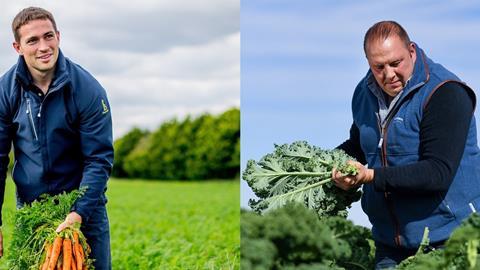Tesco Exchange offers suppliers the chance to trade surplus stock among themselves
Tesco has launched an online marketplace to match suppliers’ surplus stock with other suppliers who need it.
The supermarket said that more than 3,500 Tesco suppliers will be able to cut production costs and reduce waste by selling or donating surplus stock or products to other suppliers via Tesco Exchange. It added that production cost savings will ultimately benefit customers too.
The retailer explained that in the same way that consumer marketplaces work, suppliers can advertise surplus stock for sale on Tesco Exchange, post requests for things they need and agree sales between each other. They can also set alerts for when items they need are posted.
Crops, by-products, ingredients and packaging are among the items Tesco cited as being well suited to the new tool, with surplus waste occuring for reasons such as long periods of good weather resulting in growers having excess produce.
One of the first listings was made by veg grower G’s Group, which supplies pickled beetroot to Tesco. The manufacturing process leaves G’s with tonnes of beetroot peelings that could be used by a livestock farm as cattle feed.
Tesco said the opportunity for its new platform has been highlighted by Tesco and WWF’s recent report about on-farm food loss. The report found that in the UK alone, more than three million tonnes of food waste perishes before making it off the farm.
Sarah Bradbury, Tesco quality director, said: “Excess stock or waste for one supplier could be a valuable commodity to another. By linking different farmers, producers and manufacturers together, our suppliers can find new ways to trim their bills, reduce waste, and keep delivering great value for our customers.”
Dr Julian Parfitt, technical director at Anthesis - the sustainability activator and developer of Tesco Exchange - added: “Tesco Exchange is a great example of an initiative that the food industry needs to embrace and support in order to directly address commitments on food waste, the circular economy, and move towards more sustainable and resilient supply chains.”




